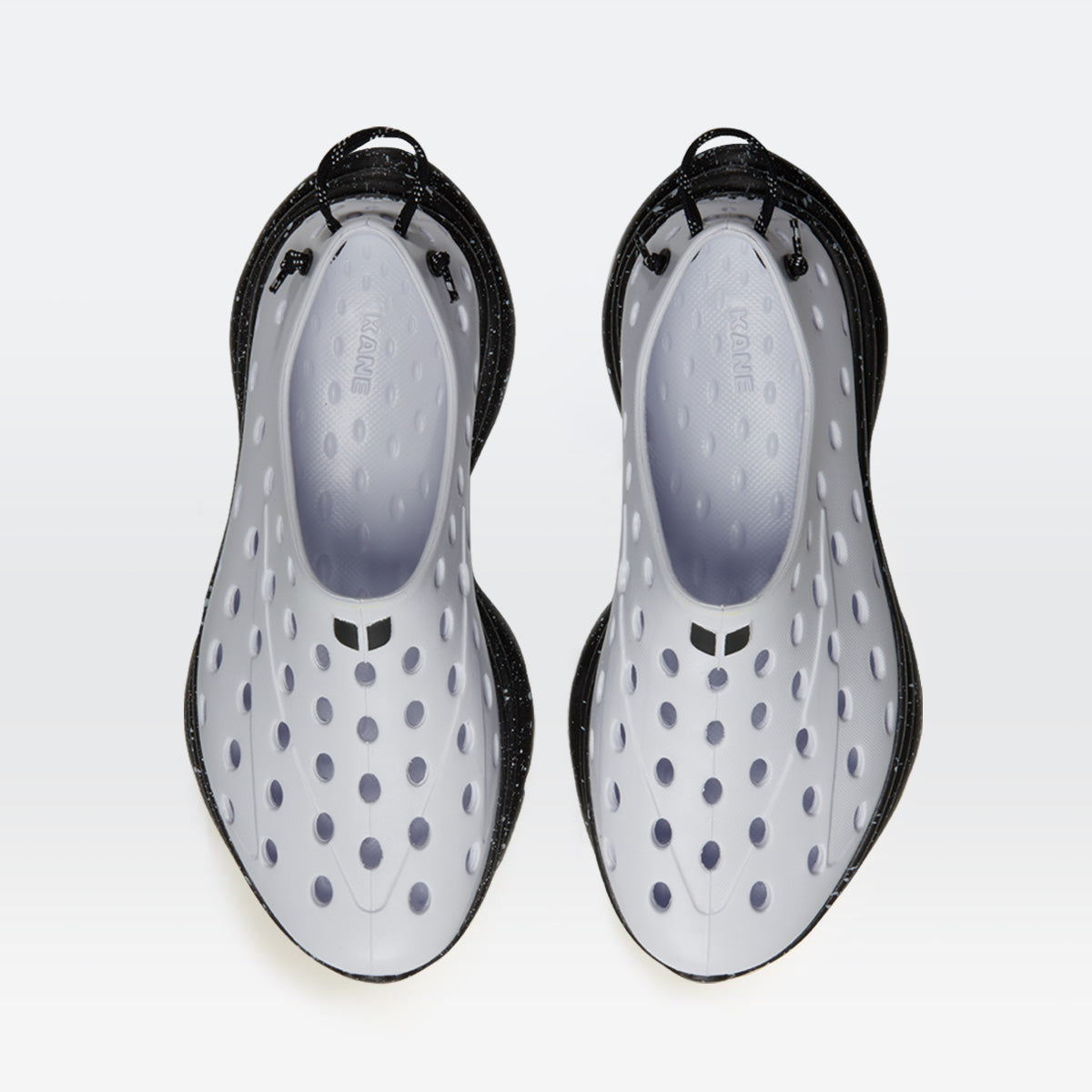Are you one of the countless individuals who clocks in when the rest of the world clocks out? Working the night shift can feel like living in a different time zone altogether, but it's more than just adjusting your sleep schedule.
Working night shifts can take a toll on your physical and mental well-being, from sleep disturbances to elevated cardiovascular risks.
Whether you're a seasoned night owl or considering a career change, understanding the side effects of working while the world sleeps is crucial for navigating the demands of night shift work while putting your health and quality of life first.
Night shift workers may experience these 9 side effects
Working night shifts can lead to various side effects, both short-term and long-term, due to the disruption of the body's natural circadian rhythm and sleep-wake cycle. Nine common negative effects are:
1. Sleep disturbances
Night workers often struggle to get enough sleep during the day due to disruptions in their circadian rhythm. Even when attempting to get some shut-eye, they may find falling or staying asleep challenging.
2. Fatigue and sleepiness
Working against the body's natural inclination to sleep at night can result in feeling drowsy during waking hours. This fatigue can accumulate over time with far-ranging effects.
3. Decreased cognitive function
Sleep deprivation can result in disrupted circadian rhythms, impairing various aspects of cognitive function, including memory, attention, concentration, and decision-making abilities. This can affect job performance, safety, and the ability to perform tasks effectively.
4. Mood changes
The stress of adjusting to a non-traditional schedule — and the irregular sleep patterns and social isolation that often goes along with it — can contribute to issues such as increased irritability, mood swings, anxiety, or depression.
5. Digestive issues
Night shift workers often experience digestive problems such as indigestion, bloating, constipation, or diarrhea due to disruptions in their circadian rhythms and eating patterns.
6. Increased risk of chronic diseases
Long-term night shift work has been linked to an increased risk of chronic health conditions such as obesity, diabetes, cardiovascular disease, gastrointestinal disorders, and certain types of cancer.
7. Social and family disruption
Night shift workers may struggle to maintain social connections and participate in family activities due to conflicting schedules and limited availability during traditional waking hours.
8. Higher risk of accidents and injuries
Fatigue, decreased alertness, and impaired cognitive function can elevate the risk of accidents and injuries in the workplace and during the commute.
9. Decreased quality of life
Sleep disruption, social isolation, and increased health risks associated with night shift work can diminish overall quality of life.
Strategies to overcome challenges of night shift work
Working off-hours has unique challenges, from disrupted sleep patterns to increased health risks. However, you can mitigate these challenges and thrive in your role with the following strategies:
Establish a consistent sleep schedule
Consistency is key for regulating your body's internal clock. Choose a bedtime and wake-up time that aligns with your schedule and stick to it, even on your days off. This consistency helps train your body to recognize when it's time to sleep and wake, improving overall sleep quality.
Create a sleep-conducive environment
Your sleep environment plays a crucial role in your ability to rest effectively. Invest in blackout curtains or blinds to block out sunlight, and use earplugs or a white noise machine to minimize noise disruptions. Keep your bedroom cool, comfortable, and free from distractions to promote restorative sleep.
Practice good sleep hygiene
Establish a regular sleep schedule, including a pre-sleep routine, to signal your body that it's time to wind down. Avoid stimulating activities like watching TV or using electronic devices close to bedtime. Instead, opt for relaxing activities like reading, taking a warm bath, or practicing relaxation techniques such as deep breathing or meditation.
Optimize nutrition and hydration
Eating a balanced diet and staying hydrated helps maintain energy levels during night shift work. Plan nutritious meals and snacks to fuel your body throughout your shift, and avoid heavy, greasy foods that can lead to digestive discomfort or energy crashes.
Stay hydrated by drinking plenty of water or herbal teas, and limit your intake of caffeine and sugary drinks, especially closer to bedtime.
Take regular breaks and nap strategically
Breaks are crucial to any work schedule, but this is especially true when you work nights. To prevent burnout and maintain productivity during night shifts, use your breaks to rest, recharge, and refuel. Take a short walk, enjoy a healthy snack, or sit down and close your eyes for a few minutes.
If you're exhausted, take a short nap during your break. Aim for a 20-30-minute nap to avoid entering deep sleep and waking up feeling groggy.
Stay active and engaged
Incorporating regular movement and exercise into your routine is beneficial when you work overnight. Take short breaks to stretch or move around, and consider integrating light exercises such as walking, jogging, or yoga into your daily schedule.
Engaging in physical activity helps boost energy levels, improve mood, and promote overall health and well-being.
Manage stress and prioritize self-care
Night shift work can be physically and emotionally demanding, especially with long working hours, so it's essential to prioritize self-care and stress management. Find activities that help you relax and unwind, whether practicing mindfulness, listening to music, or spending time in nature. Set aside time for hobbies and activities that bring you joy and fulfillment.
Don't hesitate to seek support from friends, family, or mental health professionals if you're feeling overwhelmed to prevent significant problems from taking root.
Seek social support
Connect with coworkers who understand the challenges of working the night shift. Share experiences, tips, and strategies for coping with the demands of shift work, and lean on each other for encouragement and camaraderie.
Outside of work, maintain relationships with friends and family members who can offer emotional support and understanding during your non-traditional hours.
Consider shift rotation or alternative schedules
Explore options for rotating shift work or alternative schedules that offer more predictable and consistent work hours. Talk to your employer about potential accommodations or adjustments that could help improve your work-life balance and overall well-being.
Advocate for flexible scheduling policies such as rotating shifts that prioritize employee health and wellness, and consider exploring other job opportunities or industries that may better align with your preferred schedule and lifestyle.
Implementing these strategies can help mitigate the challenges of working the night shift and promote a healthier and more sustainable approach to non-traditional work hours. Make self-care a priority, listen to your body, and seek the support you need to thrive in your role.
Frequently asked questions
What are the negative effects of working night shifts?
Working night shifts can cause various health problems that day workers don't contend with to the same degree. Sleep problems are common, as is overweight and obesity, high blood pressure and increased triglycerides and total cholesterol levels.
Unlike when you work day shifts, working off-hours can disrupt your body clock, potentially leading to shift work sleep disorders. Workers may experience fatigue and restlessness, making staying awake on the job challenging. Sleep deprivation can make it difficult to stay alert, putting workers at a higher risk of errors and accidents.
Relationships can suffer due to shift work, and shift workers can experience higher-than-average divorce rates.
Disruption of the body's metabolic process is also a common side effect of shift work. Digestive problems, a higher incidence of cardiovascular disease, and higher cholesterol levels are also common.
Brigham and Women’s Hospital and Harvard Medical School revealed that women who work more than 10 years of rotating night shift work have an elevated risk of developing coronary heart disease, even after controlling for known lifestyle factors like smoking, poor diet, lack of physical activity, and elevated body mass index.
Shift work can also take a toll on mental health, putting workers at greater risk of depression, anxiety disorders, and other issues.
Night shift work increases the risk of disrupted sleep patterns, compromised safety due to lack of restful sleep, gastrointestinal issues like bowel problems and ulcers, metabolic disorders such as obesity and diabetes due to disrupted hormone production affecting appetite regulation and metabolism, strain to the cardiovascular system, as well as a higher risk of certain types of cancer.
How does working night shifts affect the brain?
Working the night shift versus the day shift can harm the brain. Research indicates that night-shift work is associated with steep declines in cognitive abilities, memory problems, lower levels of alertness, visual focus, and impaired impulse control and situational response.
An Occupational & Environmental Medicine study showed that chronic shift work may age the brain by almost seven years, leading to cognitive deficits equivalent to six and a half years of age-related decline in long-term night shift workers.
The disruption of natural circadian rhythms while working at night challenges the body's natural clock, potentially causing brain decline and memory issues.
Night work can also lead to a reduction in focus, attention, productivity, and fine motor skills, increasing the risk of mental health issues like depression and mood disorders due to the body's struggle to adjust to unnatural sleep-wake patterns.
Night-shift work can also cause memory problems and other brain function issues, impacting overall cognitive performance and brain health.
How does working night shifts affect your feet?
Working nights can mean prolonged periods of standing or walking, leading to foot pain, discomfort, and fatigue. The strain on your feet can be exacerbated by wearing improper footwear or shoes that lack adequate support and cushioning.
To alleviate these issues, invest in high-quality, supportive footwear designed for long hours of standing. Proper shoes can help reduce the risk of foot problems and provide comfort and stability.
Recovery shoes can help night workers by providing comfort, support, and relief for their feet after long hours of standing or walking. These specialized shoes are designed to alleviate foot pain, reduce fatigue, and promote better foot health.
By wearing recovery shoes during breaks or after completing a night shift, night workers can give their feet the necessary support and cushioning to recover from the strain of extended periods on their feet.
Discover Kane Recovery Shoes!
Kane’s recovery shoes provide excellent support, comfort, and durability for those in need of top-notch recuperative footwear. Featuring an adjustable hook-and-loop single strap synthetic upper, plush TPR footbed, as well as a durable injected EVA outsole, these kicks come with all the right features to assist you during your rehabilitation journey.
Aside from providing quality products, they are also committed to sustainability, having made plans to become a B Corp while dedicating 1% of their overall profits towards environmental charities.
When and how to wear Kane Revive
The best moment to wear most recovery shoes is directly after a strenuous activity such as running or exercising. This helps minimize inflammation and launch the healing process. To guarantee maximum comfort and effective recuperation, make sure that you are wearing your footwear correctly by tying up laces securely for a snug fit around your feet.
What are the most common jobs that require working the night shift?
As the name suggests, night shift workers work during the night hours, typically starting at midnight or in the late hours of the night. They're also known as third-shift or graveyard-shift workers due to their late-night or early-morning hours.
The most common jobs that require working the night shift include roles in various industries such as healthcare workers, police officers and public safety workers, warehouse workers, transport workers, cleaning workers, hospitality workers, retail and convenience store workers, customer support workers, and film production and news crews.
Night shift work is essential in these industries to ensure continuous operations and services around the clock. Some examples of third-shift workers include cyber-security professionals, box truck owner-operators, front-end web developers, and Amazon delivery drivers.




















































